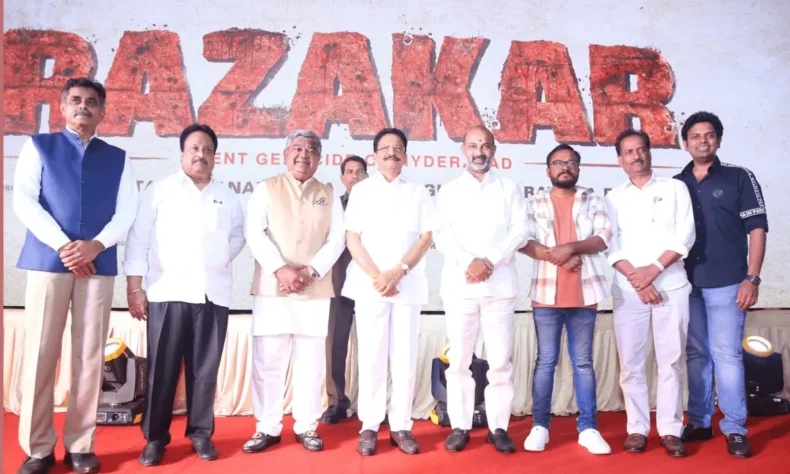
Razakar Movie
In a decision that betrays both ideological confusion and historical insensitivity, the Telangana Congress government’s move to award Razakar: Silent Genocide of Hyderabad—a film produced by BJP leader Gudur Narayana Reddy—under the Telangana Gaddar Awards is nothing short of a slap in the face to the very spirit and struggle of Gaddar himself.
By Naveed Uddin Khan Uzair
Gaddar, the revolutionary balladeer, stood as a fierce opponent of Hindutva ideologies all his life. He sang for the oppressed, spoke for the voiceless, and resisted the right-wing with unmatched courage. That a government bearing the Congress name—a party that positions itself as the ideological antithesis to the BJP—has chosen to honour a film widely seen as right-wing propaganda under his name is not just tone-deaf; it is disgraceful.
The film Razakar doesn’t simply distort history—it weaponizes it. It paints an entire community with a communal brush and resurrects an already manipulated narrative around Operation Polo, the 1948 annexation of Hyderabad. Instead of historical nuance, it offers communal caricature. And the irony? It even casts the Congress in a negative light. This is a BJP-funded project that undermines the very party now promoting it through awards.
Is this sheer ignorance on the part of the Telangana Congress leadership? Or is it something worse—an indication that Chief Minister Revanth Reddy’s ABVP past is bleeding into his political present? This incident raises disturbing questions about Congress’s ideological clarity in Telangana.
The Congress missed a golden opportunity to reclaim the narrative of Hyderabad’s merger with India. It could have reminded citizens that it was their party that orchestrated the integration. Instead, the government has handed the microphone to its ideological opponents, awarding their revisionist version of events.
More troubling, however, is the message this sends to the Muslim community in Telangana and India at large—a community already grappling with growing hostility and exclusion. To award a film that vilifies them, and to do so under the name of a man who spent his life opposing fascist tendencies, adds insult to injury.
This move reveals not just political miscalculation, but a fundamental erosion of ideological backbone. The Congress can’t afford to mimic the BJP’s playbook in hopes of electoral gains. If it hopes to retain credibility as a secular, inclusive force, it must walk the talk—and that means rescinding awards given to divisive, communal narratives like Razakar.
September 17 is approaching. Let us hope it is not marked by more distortion and noise. Let it be a day of reclaiming history with truth, empathy, and unity, not one of betrayal masked as bureaucracy. The Congress must decide: does it honour Gaddar’s legacy, or bury it under applause for its ideological adversaries?
(Views expressed in this article are the author’s alone)
This article is published by Crime Today News ©






